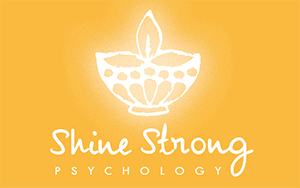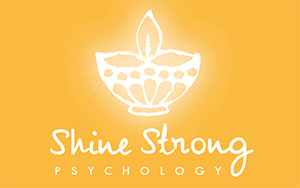Why Shine Strong Psychology
Shine Strong Psychology offers private sessions in a relaxed setting, offering practical techniques to help people cope in their day-to-day lives in the convenient location of Cairns.
Shine Strong Psychology's social mission
To provide therapy, practical life coping techniques/skills and well-being strategies
to assist individuals, their carers and women's groups within our region.
We address areas such as trauma, anxiety, depression, post-traumatic stress disorder, Indigenous health and work issues amongst other mental health conditions to benefit the public and our community.
EMDR Therapy
We offer online EMDR therapy Australia-wide.
It’s easy, safe and comfortable in your own home. Whether you require it due to the COVID-19 situation, if you live in a remote community unable to attend cities for therapy, for mobility issues or for anyone who finds themselves isolated at home for any reason.
Confidential Sessions
Feel comfortable knowing that your sessions are fully confidential and held in a relaxed, safe environment.
Unique Approach
We offer a modern style of Psychology with a unique approach to problems with practical coping techniques.
Private or Small Groups
Treatment available for individuals or small groups ( on request) so ask us about how we can work with your organisation.

Commencing Friday 1 May, an additional treatment approach has been included - Eye Movement Desensitisation Reprocessing therapy (EMDR). Any Psychologist with adequate training and experience in providing EMDR can now do so and their services will attract a Medicare rebate with a valid Better Access Mental Health Care Plan or for a client utilising the Bushfire Recovery Access Initiative (no GP referral required). Focussed Psychological Strategies now contains : Psycho-education (including motivational interviewing) Cognitive-behavioural therapy including : Behavioural interventions Behaviour modification Exposure techniques Activity scheduling Cognitive interventions Cognitive therapy Relaxation strategies : Progressive muscle relaxation Controlled breathing Skills training: Problem solving skills and training Anger management Social skills training Communication training Stress management Parent management training Interpersonal therapy (especially for depression) There is also flexibility to include narrative therapy for clients of Aboriginal and Torres Strait Islander descent. Further information about this announcement, read the MBS article here . Read more about EMDR from Shine Strong Psychology. Source: Australian Psychology Association Inc, EMDR Therapy and Psychology Interest Group

On one hand I was so excited for his adventure but on the other was holding back a flood of tears at the thought my first baby had grown up. Following my sons departure I spent a lot of time reflecting on the whirlwind of the last 19 years of my parenting ride. What a privilege it has been being a Mum to two beautiful sons, but if there is one thing I wished I had done a little more of over the years that would be to have taken more time for my own self-care. Research suggests that if we invest in just 10 minutes a day of self-care in the form of mindfulness or meditation it will assist with our ability to remain calm in the face of life’s storms. Taking time to include some exercise into your day or week also promotes self-care as it produces those great happy endorphins that everyone talks about. But if you are anything like me I struggle to find the time for self-care as often there are no daylight hours left after work, fulfilling all of life’s demands and taking care of my family’s needs. So as this year draws to an end I would encourage you all to set yourself goals for 2020 to improve your self-care. Self-care can also be in the form of rewards. Give yourself small but regular rewards as by doing this we activate the natural chemical called dopamine which gives us a quick hit of motivation, and we all know we could do with a bit more of that! Rewards can be as simple as booking a massage, going to the movies or getting your nails done… whatever works for you. Another type of self-care that is also rewarding is catching up with your lady tribe (can you believe it) and guess what there is actually some real science behind it. In 2016 a study found evidence that spending time with friends increases the production of oxytocin which is the hormone that produces feelings of love, bonding and wellbeing. Cheers to that science! Sometimes it is difficult to fit in the time to give ourselves selfcare but if we don’t regularly recharge our batteries then we are at risk of burn out or depression. For the past four years my girlfriends and I take off on a girls only weekend every May and this has become something I look forward to at the beginning of every year. It’s my way of doing something that is just for me. This proved to be the most important medicine that I could of asked for when my second born son had a skateboard accident in February 2018 in which he fractured his skull and was put on life support. The following three months of my life went by in a blur as my husband and I shared the shifts to be by his side during his recovery whilst juggling to keep both of our individual businesses running. After three months my son had recovered enough to return to school full time which was just in time for my annual girlfriend getaway. What my lady tribe gave me was the space to recharge and to just be me which I hadn’t felt in such a long time. We laughed, cried, drank wine, had adventures and shared our past years pains and joys. What a healing balm to my soul. By the time I returned home I was ready to go back into battle with my modern life again. To all the lady tribes out there please remember to invest in your own self-care in 2020… Note: this article was originally published in Oasis Magazine . You can download the PDF version here .

My head was consumed by the upcoming weeks enormous to-do list, having just survived a hectic weekend of housework, driving the kids around and recovering from one too many wines watching the AFL grand final with friends. It suddenly dawned on me, that one of the important men in my life was showing signs of a decline in his wellbeing. But I’m a mental health professional. How did I fail to notice this? Simple - with all the stresses of our normal, daily lives, recognising the signs can be tricky. I thought how often this must be happening, and how important it is for us all to know the signs and risk factors, and know when to act. Quite often, men are carrying a burden of mental health issues that is hidden from our view. They tend to find it difficult to break the stigma of weakness that is far too often associated with depression or anxiety. Around the world, one man suicides every minute, and in Australia, males account for two-thirds of all suicides. Research in Australia has identified that men use different coping strategies than women to mitigate negative feelings associated with mental health. A few of these strategies include humour, keeping themselves busy, exercising, eating healthy, helping others and being goal focused. However, sometimes these strategies fail, so it’s important we know the signs to look for that indicate the much loved male in our lives may be battling depression or anxiety. These emotions may emerge as restlessness or lack of interest in daily activities, changes in weight or sleep patterns, feelings of worthlessness or agitation, a difficulty in concentration or the ability to control their worry. Research has also identified that even though depression is a key factor in male suicide, it is not the major reason. Men are more likely to attempt suicide after difficult life events, particularly the Three D’s - death, divorce and debt. If any of these events occur 4 tips maybe helpful: Attend to the signs of mental health decline by knowing the signs. Ask them if they are OK? Accept and listen to their experience. Aid them to make a connection with others such as professional, friends or even a phone counselor. If you, or anyone you know are experiencing any issues with anxiety, depression or other mental health issues, please visit the Beyond Blue Movember website, or call Lifeline on 13 11 14, or the Suicide Call Back service on 1300 659 467. Note: this article was originally published in Oasis Magazine . You can download the PDF version here .



